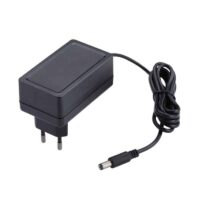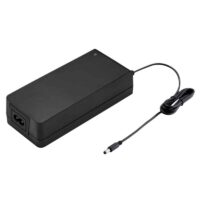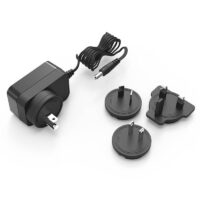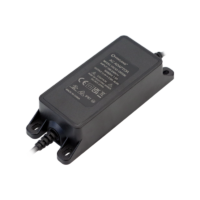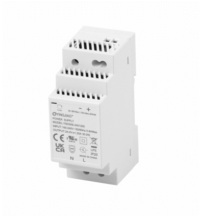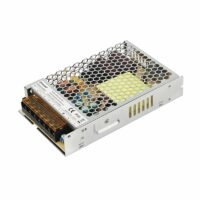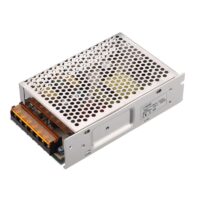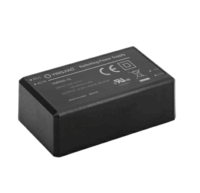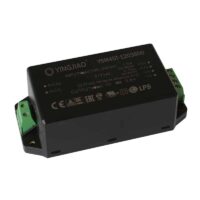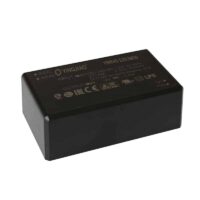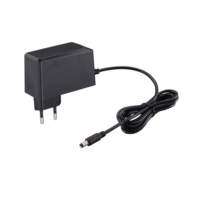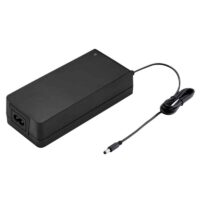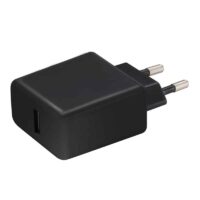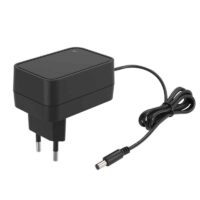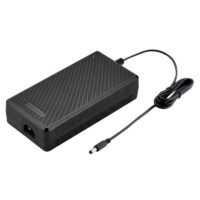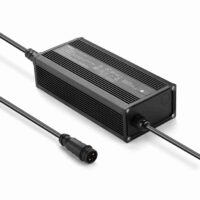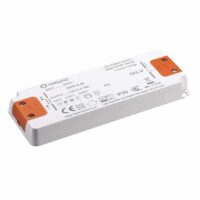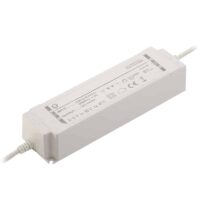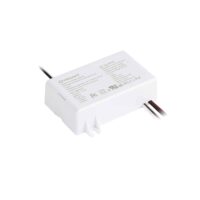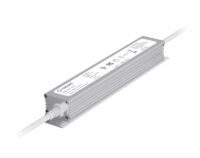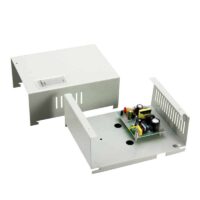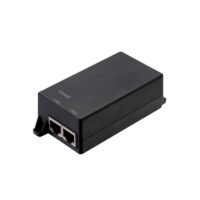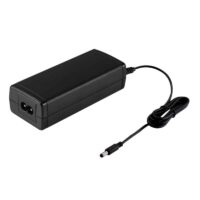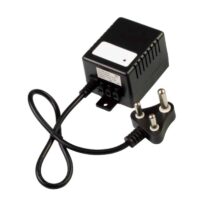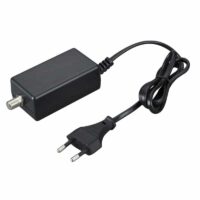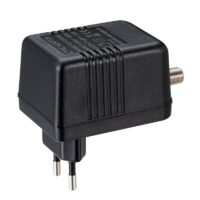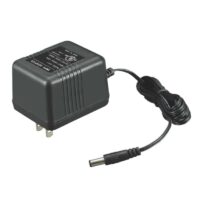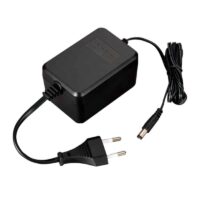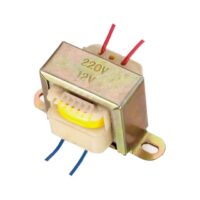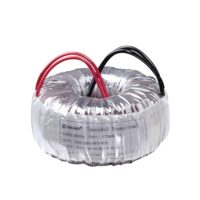In today’s fast-paced industrial landscape, optimizing efficiency is a top priority for businesses. And when it comes to powering operations, selecting the right power supply can make a world of difference. With the potential to transform your operations, the power supply acts as the backbone of industrial efficiency.
From manufacturing plants to data centers, a reliable and efficient power supply ensures uninterrupted production, safeguarding against costly downtime and keeping operations running smoothly. But choosing the right power supply goes beyond simply meeting electrical requirements. It involves selecting a solution that aligns with your unique operational needs, maximizes energy efficiency, and minimizes waste.
In this article, we delve into the importance of selecting the right power supply for industrial operations. We discuss key factors to consider, such as voltage requirements, power capacity, energy efficiency ratings, and backup options. By understanding the intricacies of power supply selection, you can optimize your operations, reduce costs, and elevate your competitive edge.
Discover how the right power supply can empower your business and contribute to a more efficient and sustainable future in the industrial sector. So, take the first step towards transformation and unlock the full potential of your operations with the right power supply solution.

The importance of power supply in industrial operations
A reliable and efficient power supply is the lifeblood of any industrial operation. It provides the necessary electricity to power machinery, equipment, and systems, ensuring uninterrupted production and smooth operations. Without a consistent and high-quality power supply, businesses may face costly downtime, reduced productivity, and potential damage to equipment.
When selecting a power supply for your industrial operations, there are several key factors to consider. First and foremost, you need to assess your voltage requirements. Different operations may have varying voltage needs, and it is crucial to choose a power supply that can meet these requirements without any compromise. Whether you need a low voltage or high voltage power supply, selecting the right voltage is essential for maintaining the optimal functioning of your equipment.
Additionally, power capacity is another crucial consideration. The power supply should have sufficient capacity to handle the electrical load of your operations. Determining the power capacity involves calculating the total power consumption of all the equipment and systems that will be connected to the power supply. This calculation ensures that the power supply can handle the load without overloading or causing any disruptions.
Energy efficiency is also a critical factor to consider when choosing a power supply. By opting for an energy-efficient power supply, businesses can reduce their energy consumption, lower utility bills, and minimize their carbon footprint. Look for power supplies that have high energy efficiency ratings, such as those certified by ENERGY STAR or other recognized organizations. These power supplies are designed to minimize energy waste and operate at optimal efficiency levels.
Furthermore, backup options should be taken into account when selecting a power supply. Industrial operations cannot afford to experience downtime due to power outages. Therefore, having a backup power supply or a reliable uninterruptible power supply (UPS) system is essential. These backup options ensure that operations can continue smoothly even during power disruptions, preventing costly production delays and equipment damage.
By carefully considering these factors and choosing the right power supply for your industrial operations, you can significantly improve efficiency, reduce costs, and enhance your competitive edge in the market.
Types of power supplies for industrial applications
When it comes to power supplies for industrial applications, there are several types available, each with its own unique characteristics and advantages. Understanding the different types can help you make an informed decision and choose the most suitable power supply for your specific needs.
1. Switch-mode power supplies (SMPS): SMPS are widely used in industrial applications due to their compact size, high efficiency, and ability to handle a wide range of input voltages. These power supplies convert the incoming AC voltage to DC voltage using solid-state devices, such as transistors and diodes. SMPS are known for their reliability, stability, and ability to deliver a constant output voltage even under varying load conditions. They are commonly found in applications such as data centers, telecommunications, and industrial automation.
2. Linear power supplies: Linear power supplies are known for their simplicity and low noise operation. These power supplies use a transformer to step down the input voltage and regulate the output voltage. Linear power supplies are often used in audio and communication equipment, where low noise and high-quality power are critical. However, they are less energy-efficient compared to SMPS and generate more heat during operation.
3. Uninterruptible Power Supplies (UPS): UPS systems are designed to provide backup power during mains power failures or disruptions. They not only protect against power outages but also offer protection against voltage fluctuations and surges. UPS systems typically consist of a battery, an inverter, and a charger. When the mains power fails, the UPS switches to battery power, ensuring uninterrupted operation until the mains power is restored or a backup generator takes over. UPS systems are commonly used in critical applications such as data centers, hospitals, and industrial control systems.
4. DC power supplies: DC power supplies provide a constant DC voltage output and are commonly used in applications that require a stable and precise power source. They are often used in laboratories, research facilities, and test and measurement equipment. DC power supplies can be either linear or switch-mode, depending on the specific requirements of the application.
Choosing the right type of power supply depends on various factors, including the nature of your industrial operations, the specific voltage requirements, the need for backup power, and the desired level of energy efficiency. Consider consulting with a power supply expert or manufacturer to determine the most suitable option for your business.
Factors to consider when choosing a power supply
Selecting the right power supply for your industrial operations involves considering several factors that can impact the efficiency, reliability, and overall performance of your systems. By taking these factors into account, you can ensure that your power supply meets your specific needs and contributes to the smooth operation of your business.
1. Voltage requirements: Determine the voltage requirements of your equipment and systems, considering both input and output voltages. Ensure that the power supply can deliver the required input voltage for your equipment to function optimally. Additionally, consider any specific voltage regulation requirements for sensitive equipment.
2. Power capacity: Calculate the total power consumption of all the devices, machinery, and systems that will be connected to the power supply. Ensure that the power supply has sufficient capacity to handle the combined load without overloading.
3. Efficiency ratings: Look for power supplies with high energy efficiency ratings. Energy-efficient power supplies not only save energy and reduce utility costs but also generate less heat, leading to increased reliability and longer lifespan.
4. Reliability and durability: Consider the reliability and durability of the power supply. Look for power supplies that are designed for industrial use and can withstand harsh operating conditions, such as temperature variations, vibrations, and humidity.
5. Protection features: Ensure that the power supply has built-in protection features, such as overvoltage protection, overcurrent protection, and short circuit protection. These features safeguard your equipment and systems from potential damage caused by voltage spikes or other electrical issues.
6. Compatibility: Check the compatibility of the power supply with your existing equipment and systems. Ensure that the power supply has the necessary connectors, interfaces, and voltage levels to seamlessly integrate into your operations.
7. Backup options: Assess the need for backup power options, such as UPS systems or backup generators, depending on the criticality of your operations. Having a reliable backup power solution ensures uninterrupted production and protects against costly downtime.
8. Maintenance and support: Consider the maintenance requirements and availability of support services for the power supply. Look for manufacturers or vendors that offer comprehensive support, including troubleshooting assistance, spare parts availability, and warranty coverage.
By carefully evaluating these factors and selecting a power supply that aligns with your specific needs, you can optimize efficiency, reduce downtime, and enhance the overall reliability of your industrial operations.
The impact of the right power supply on operational efficiency
Choosing the right power supply for your industrial operations can have a significant impact on the overall efficiency and productivity of your business. A reliable and efficient power supply acts as the backbone of industrial efficiency, ensuring uninterrupted production, minimizing downtime, and reducing energy waste. Let’s explore some of the key ways in which the right power supply can transform your operations.
1. Enhanced productivity: A reliable power supply ensures that your machinery, equipment, and systems operate smoothly without interruptions caused by power outages or voltage fluctuations. This leads to increased productivity and minimizes costly downtime. With a consistent power supply, you can meet production targets, fulfill customer orders on time, and maintain a competitive edge in the market.
2. Energy savings: Energy-efficient power supplies help reduce energy consumption and lower utility bills. By optimizing energy usage and minimizing energy waste, businesses can achieve substantial cost savings in the long run. Energy-efficient power supplies also contribute to sustainability efforts by reducing carbon emissions and promoting a greener industrial sector.
3. Equipment protection: Power supply issues, such as voltage spikes or electrical noise, can damage sensitive equipment and systems, leading to costly repairs or replacements. The right power supply with built-in protection features safeguards your equipment against such issues, ensuring their longevity and minimizing the risk of unexpected failures.
4. Scalability and flexibility: As your business grows and evolves, your power supply needs may change. The right power supply allows for scalability and flexibility, accommodating increased power demands and adapting to new equipment or systems. This scalability ensures that your operations can expand without significant disruptions or the need for costly power infrastructure upgrades.
5. Improved system stability: Fluctuations in power quality, such as voltage sags or harmonic distortions, can destabilize sensitive equipment and affect the overall performance of your systems. A reliable power supply with stable output voltage and minimal harmonic distortion ensures system stability, preventing costly production errors, data loss, or equipment malfunctions.
6. Compliance with regulations: Different industries have specific regulations and standards regarding power quality, energy efficiency, and safety. Selecting a power supply that complies with these regulations ensures that your operations meet the necessary requirements and avoid potential legal or regulatory issues.
By investing in the right power supply for your industrial operations, you can optimize efficiency, reduce costs, and elevate your competitive edge. The transformative impact of a reliable and efficient power supply is evident in numerous industries, from manufacturing and automotive to telecommunications and data centers. Let’s explore some real-world case studies where companies achieved significant operational improvements by choosing the right power supply solution.
Case studies of companies that transformed their operations with the right power supply
1. Company X: Manufacturing Plant Optimization
Company X, a leading manufacturer of consumer electronics, was facing challenges with its existing power supply infrastructure. Frequent power outages and voltage fluctuations were causing costly downtime, equipment failures, and production delays. To address these issues, the company decided to invest in a comprehensive power supply solution.
The solution included the installation of a reliable UPS system to provide backup power during outages and voltage stabilization during fluctuations. Additionally, the company upgraded its power supply units to energy-efficient models with built-in protection features. The new power supply solution significantly improved the stability and reliability of the manufacturing plant, reducing downtime by 80% and eliminating equipment failures caused by power issues.
2. Company Y: Data Center Efficiency Enhancement
Company Y, a large data center operator, was facing escalating energy costs and struggling to meet the growing power demands of its clients. The existing power supply infrastructure was inefficient, resulting in high energy consumption and excessive heat generation. To improve efficiency and reduce costs, the company decided to upgrade its power supply system.
The solution involved the implementation of highly efficient SMPS units with advanced power management features. These power supplies offered higher energy efficiency ratings, reduced energy waste, and improved heat dissipation. Additionally, the company implemented a comprehensive power monitoring and management system to track energy consumption and identify areas for further optimization. As a result, the data center achieved a 30% reduction in energy costs and enhanced its competitive position by offering more sustainable and cost-effective services to its clients.
3. Company Z: Industrial Automation Reliability Improvement
Company Z, a manufacturer of industrial automation equipment, was experiencing frequent equipment failures and production disruptions due to power quality issues. Voltage sags, harmonic distortions, and electrical noise were affecting the performance and reliability of their systems. To overcome these challenges, the company decided to upgrade its power supply infrastructure.
The solution involved the installation of high-quality power supplies with stable output voltage and advanced protection features. The new power supplies were designed to filter out harmonic distortions and provide clean and stable power to the automation equipment. This resulted in improved system stability, reduced equipment failures, and enhanced production efficiency. The company saw a 50% reduction in equipment downtime and a significant increase in customer satisfaction due to improved product quality and reliability.
These case studies highlight the tangible benefits that companies can achieve by choosing the right power supply solution. Whether it’s reducing downtime, enhancing energy efficiency, improving system stability, or ensuring compliance with industry regulations, the power supply plays a crucial role in transforming industrial operations.
Common challenges in power supply selection and how to overcome them
While choosing the right power supply for industrial operations is crucial, it can also be a complex and challenging task. Several common challenges may arise during the selection process. However, by being aware of these challenges and following some best practices, you can overcome them and make an informed decision.
1. Lack of expertise: Power supply selection requires specialized knowledge and expertise. Many businesses may not have in-house experts who can evaluate their power supply needs and recommend suitable solutions. To overcome this challenge, consider consulting with power supply experts or working closely with reputable power supply manufacturers or vendors. These professionals can provide valuable insights, assess your specific requirements, and guide you towards the most appropriate power supply solution.
2. Changing power demands: Industrial operations are dynamic, and power demands may change over time due to factors such as expansion, new equipment additions, or process modifications. This can pose challenges when selecting a power supply, as it needs to accommodate both current and future power requirements. To overcome this challenge, opt for power supplies that offer scalability and flexibility, allowing for easy expansion or upgrades as your power demands evolve. Additionally, consider power supply solutions that allow for modular configurations, enabling you to add or remove power supply units as needed.
3. Budget constraints: Power supply selection is often influenced by budget limitations. Businesses may have a limited budget for power supply infrastructure, which can impact their options and the desired level of quality or features. To overcome this challenge, focus on prioritizing your requirements and identifying the critical aspects that are non-negotiable. Consider working closely with power supply manufacturers or vendors
Trends and advancements in industrial power supply technology
Selecting the right power supply for your industrial operations can be a daunting task. There are several common challenges that businesses face when it comes to power supply selection, but with the right knowledge and guidance, these challenges can be overcome.
One of the major challenges is understanding the voltage requirements of your equipment. Different machinery and systems have varying voltage requirements, and using the wrong power supply can lead to equipment damage or inefficient operation. To overcome this challenge, it is crucial to carefully analyze the voltage requirements of your equipment and select a power supply that matches those requirements. Consulting with an expert in power supply solutions can also help in ensuring compatibility and preventing any potential issues.
Another challenge is determining the power capacity needed for your operations. Industrial operations often involve high-power machinery and equipment, and selecting a power supply with insufficient capacity can result in frequent power outages or system failures. On the other hand, choosing a power supply with excessive capacity can lead to unnecessary energy wastage and higher costs. To overcome this challenge, it is important to accurately assess the power requirements of your operations and select a power supply that provides the appropriate capacity. Conducting a power audit or seeking assistance from a power supply specialist can help in determining the optimal power capacity for your operations.
Energy efficiency is another crucial factor to consider when selecting a power supply for industrial operations. Inefficient power supplies not only consume excessive energy but also generate additional heat, which can impact the overall efficiency and longevity of your equipment. To overcome this challenge, it is important to look for power supplies that have high energy efficiency ratings. These ratings indicate the percentage of energy that is converted into usable power, with higher ratings indicating better efficiency. Investing in energy-efficient power supplies can significantly reduce your energy consumption, lower utility costs, and contribute to a more sustainable operation.
Best practices for maintaining and optimizing power supply systems
The field of industrial power supply technology is constantly evolving, with new trends and advancements emerging to meet the ever-increasing demands of modern industrial operations. Staying updated on these trends can help businesses make informed decisions when selecting a power supply solution. Here are some noteworthy trends and advancements in industrial power supply technology:
1. Digitalization and Smart Grid Integration: The integration of digital technologies and smart grid systems is revolutionizing the power supply landscape. Digital power supplies offer advanced monitoring and control capabilities, allowing businesses to optimize energy consumption, detect faults, and improve overall system reliability. Smart grid integration enables better coordination between power generation, distribution, and consumption, resulting in improved efficiency, reduced downtime, and enhanced grid stability.
2. Modular Power Supplies: Modular power supplies have gained popularity in recent years due to their flexibility and scalability. These power supplies consist of multiple modules that can be easily added or removed to match the power requirements of the system. This modular approach allows businesses to optimize their power supply infrastructure, reduce wasted energy, and easily expand or upgrade their systems as needed.
3. Renewable Energy Integration: As businesses strive for sustainability and reduced carbon footprint, the integration of renewable energy sources into power supply systems has become a growing trend. Solar panels, wind turbines, and other renewable energy sources can be integrated with traditional power supplies to reduce reliance on fossil fuels and lower energy costs. This trend aligns with the global shift towards clean energy and contributes to a more environmentally friendly industrial sector.
4. Power Quality and Harmonics Mitigation: In industrial settings, power quality issues such as voltage sags, surges, and harmonics can cause significant damage to equipment and disrupt operations. Advanced power supply technologies are being developed to mitigate these issues and ensure a stable and clean power supply. Power factor correction, harmonic filters, and voltage regulation systems are some of the solutions being employed to improve power quality and protect sensitive equipment.
Choosing the right power supply vendor or manufacturer
Selecting the right power supply is just the first step towards optimizing industrial operations. To ensure long-term efficiency and reliability, it is important to implement best practices for maintaining and optimizing power supply systems. Here are some key best practices to consider:
1. Regular Maintenance and Inspections: Regular maintenance and inspections are essential for identifying and addressing potential issues before they escalate. Conducting routine checks, cleaning, and calibration of power supply systems can help prevent unexpected breakdowns, extend the lifespan of the equipment, and maintain overall system efficiency. It is recommended to create a maintenance schedule and adhere to it consistently.
2. Monitoring and Data Analysis: Implementing a comprehensive monitoring and data analysis system can provide valuable insights into power consumption patterns, efficiency levels, and potential areas for improvement. Real-time monitoring of power supply performance allows businesses to detect anomalies, optimize energy usage, and identify opportunities for energy-saving initiatives. Analyzing historical data can also help in predicting future power requirements and planning for expansion or upgrades.
3. Load Balancing and Redundancy: Uneven distribution of loads can strain certain power supply components and lead to premature failure. Implementing load balancing techniques ensures that power supply components are evenly utilized, preventing overloading and extending the lifespan of the equipment. Additionally, incorporating redundancy in critical power supply systems can provide backup options in the event of a failure, minimizing downtime and ensuring uninterrupted operations.
4. Power Factor Optimization: Power factor optimization is a technique used to improve the overall efficiency of power supply systems. By reducing reactive power, power factor optimization reduces energy consumption and lowers utility costs. Implementing power factor correction techniques, such as capacitor banks and harmonic filters, can help businesses achieve optimal power factor levels and maximize energy efficiency.
Conclusion: The transformative power of choosing the right power supply for industrial operations.
Selecting the right power supply vendor or manufacturer is crucial for obtaining a reliable and high-quality power supply solution. Here are some key factors to consider when choosing a vendor or manufacturer:
1. Reputation and Experience: Look for vendors or manufacturers with a strong reputation and extensive experience in the industry. A reputable vendor is more likely to provide high-quality products, reliable customer support, and a track record of successful installations.
2. Product Range and Customization Options: Consider the vendor’s product range and whether they offer customization options. Industrial operations have unique power supply requirements, and having the flexibility to customize the power supply solution can ensure a better fit for your specific needs. Additionally, a vendor with a diverse product range can provide options for different power capacities, voltages, and backup options.
3. Quality and Compliance: Ensure that the vendor’s products meet industry standards and certifications. Look for vendors that adhere to quality control processes and have certifications such as ISO 9001. Additionally, consider the vendor’s commitment to sustainability and environmental responsibility.
4. Technical Support and Service: Assess the vendor’s technical support capabilities and after-sales service. A reliable vendor should provide timely and efficient technical support, troubleshooting assistance, and spare parts availability. Consider reading customer reviews or seeking recommendations to gauge the vendor’s level of service.

